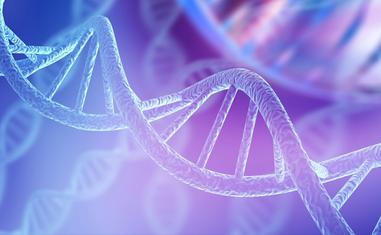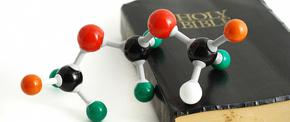The views expressed in our content reflect individual perspectives and do not represent the authoritative views of the Baha'i Faith.
Are science and morality interrelated or opposing phenomena? Our individual and collective lives are influenced by both in day-to-day life.
As a system of knowledge and activity based on intellectual endeavour, science studies and unravels facts about the material world through observation and experimentation. Morality is based on a system of values and principles of conduct that distinguish between right and wrong behaviors and conform to ideal virtues.
In the book “Moral Leadership, The Global Classroom,” Eloy Anello wrote, “At the heart of the crisis affecting humanity, there is an underlying crisis of values which manifests itself in the social, economic, political and environmental spheres of human life. This crisis in values is part of the root cause that has generated the vacuum in moral leadership that permeates all levels of society…”
Although morality is largely influenced by religious values and teachings, other factors can also affect moral attitudes, namely cultural, traditional, racial, and materialistic mindsets and prejudices. However, in essence, moral virtues enable us to differentiate right from wrong and to inculcate ethical conduct.
RELATED: Can Science Unravel the Power of Prayer and Meditation?
The primary function of science is the pursuit and application of knowledge of the natural and social world for the progress of civilization. Thus, its purpose is not to provide ethical guidance and moral education. In a talk in London in 1911, Abdu’l-Baha, the son of Baha’u’llah, the prophet and founder of the Baha’i Faith explained that as a result, “Religion and Science are inter-twined with each other and cannot be separated. These are two wings with which humanity must fly. One wing is not enough… science, education and civilization are most important necessities for the full religious life.”
The Baha’i Writings exalt the significance of science as well as the role of moral education, both of which are crucial in the advancement of humankind. In a talk in New York City in 1912, Abdu’l-Baha stated, “This scientific power investigates and apprehends created objects and the laws surrounding them. It is the discoverer of the hidden and mysterious secrets of the material universe and is peculiar to man alone. The most noble and praiseworthy accomplishment of man, therefore, is scientific knowledge and attainment.”
Furthermore, as Abdu’l-Baha explained, the Baha’i teachings consider scientific knowledge as “the highest attainment upon the human plane, for science is the discoverer of realities. It is of two kinds: material and spiritual. Material science is the investigation of natural phenomena; divine science is the discovery and realization of spiritual verities. The world of humanity must acquire both.”
Science is a powerful instrument created and expanded by the human mind. Like any other instrument it can be used for the well-being, peace, and prosperity of humanity or for the destruction of millions of people. Albert Einstein’s theory of relativity succeeded in harmonizing the laws of mechanics and electromagnetics, earning him the Nobel Prize in physics in 1921. However, his discovery was unfortunately used by politicians and scientists to develop the nuclear bomb, which caused untold death and destruction.
The human intellect, in this case, misused a discovery aimed at the advancement of science and society for destructive ends. Therefore, the human soul and conscience have to be educated in order to prevent such a catastrophic application of science. In an article for the Conference on Science, Philosophy and Religion in Their Relation to the Democratic Way of Life, held in New York City in 1940, Albert Einstein wrote: “Science without religion is lame, religion without science is blind.”
In recent years books have been published by philosophers and scientists which promote the notion that science rather than religion can provide a basis for ethics and morality. One such hypothesis holds that the concept of evolution and natural selection could be the basis for the development of a new moral system, while another one finds that “human flourishing “ and the well-being of individuals could be the answer.
John Staddon, a professor at Duke University, disagrees with the claims of proponents of the doctrine of “science-based” ethics who treat moral values as though they are scientific facts. He holds that, as moral values cannot be tested or measured, they cannot be considered “scientific facts.”
Further, religion is portrayed as the cause of division and superstition. Proponents of this idea argue that humanity has evolved to such a degree that through its advanced knowledge it is able to provide its own system of ethics and moral values. For example, physician and author Harriet Hall wrote that “Religion has long claimed that morality is its province, but this is clearly untenable.” Such a view denies the long history of religions’ contribution to the moral education of the people of the world, conflating the original teachings of religions with the actions of those who usurped those teachings to promote their personal interests.
Abdu’l-Baha explained that “God has endowed man with intelligence and reason whereby he is required to determine the verity of questions and propositions. If religious beliefs and opinions are found contrary to the standards of science they are mere superstitions and imaginations; for the antithesis of knowledge is ignorance, and the child of ignorance is superstition.”
The Baha’i Writings emphasize that religion must be in harmony with human reason and science. Otherwise, devoid of logic, religion degenerates into superstition and dogma. In a talk in Paris, Abdu’l-Baha said: “When religion, shorn of its superstitions, traditions, and unintelligent dogmas, shows its conformity with science, then will there be a great unifying, cleansing force in the world which will sweep before it all wars, disagreements, discords and struggles – and then will mankind be united in the power of the Love of God.”
The capacity to distinguish right from wrong, though very important, is only one of many capacities that human beings need to develop. The Revelation of Baha’u’llah is destined to transform the entire character of humanity. “The object of every Revelation,” Baha’u’llah stated, “is to effect a transformation in the whole character of mankind, a transformation that shall manifest itself both outwardly and inwardly, that shall affect both its inner life and external conditions.”
Transformation of character is part of an individual’s growth, which manifests itself in his or her inner life and is expressed outwardly in society. It is not purely intellectual, requiring validation through scientific measurement as one would evaluate an object. The development of moral values requires vigorous self-discipline and may be associated with hardship and suffering. Helen Keller’s famous statement on character formation befittingly illustrates this: “Character cannot be developed in ease and quiet. Only through experience of trial and suffering can the soul be strengthened, ambition inspired, and success achieved.”
With respect to morality, Baha’is believe that the happiness and well-being of humanity depends on “cultivating human character and social order in conformity with reality. Divine teachings shed light on reality, enabling every soul to investigate it properly and acquire, through the exercise of personal discipline, those attributes that are to distinguish the human being.”
Science is an instrument for uncovering the facts and mysteries of the world of existence. It is a creation of the human mind and intelligence and contributes extensively to building our civilization. Many scientific discoveries and inventions in the history of humanity were made by scientists who also had religious beliefs. The Baha’i teachings emphasize the importance of the harmony between science and religion. If this harmony is not present, religion may degenerate into superstition.
At the same, as Martin Luther King Jr. said, “Our scientific power has outrun our spiritual power. We have guided missile and misguided men.” During the COVID crisis, the reaction of certain people who profess religious beliefs reflects a disparity in their perception of the relationship between science and religion causing them to defy the advice of scientists and medical experts. This underlines the importance of valuing scientific knowledge for preserving our health and well-being while believing in spiritual truths.
Abdu’l-Baha elucidated this transition in the following words: “that which was applicable to human needs during the early history of the race can neither meet nor satisfy the demands of this day, this period of newness and consummation…Many must now become imbued with new virtues and powers, new moral standards, new capacities…The gifts and blessings of the period of youth although timely and sufficient during the adolescence of mankind, are now incapable of meeting the requirements of its maturity.”
The following prayer by Abdu’l-Baha also captures so poignantly the significance of the profound integration of science, arts, and morality:
O Lord, help Thou Thy loved ones to acquire knowledge and the sciences and arts, and to unravel the secrets that are treasured up in the inmost reality of all created beings. Make them to hear the hidden truths that are written and embedded in the heart of all that is. Make them to be ensigns of guidance amongst all creatures, and piercing rays of the mind shedding forth their light in this, the ‘first life’. Make them to be leaders unto Thee, guides unto Thy path, runners urging men on to Thy Kingdom.
With changes over time come different requirements for society and these new requirements call for new remedies and solutions. The present world crises and upheavals are characteristics of the adolescent period in the development of humanity, a period of transition in human history. As we leave behind this turbulent period of adolescence to embrace the stage of maturity, we will be obliged to abandon certain attitudes, thoughts, and habits of the past and to adopt new ones while developing the capabilities befitting this lofty period of collective maturity and prosperity.

















Comments
Sign in or create an account
Continue with Facebookor